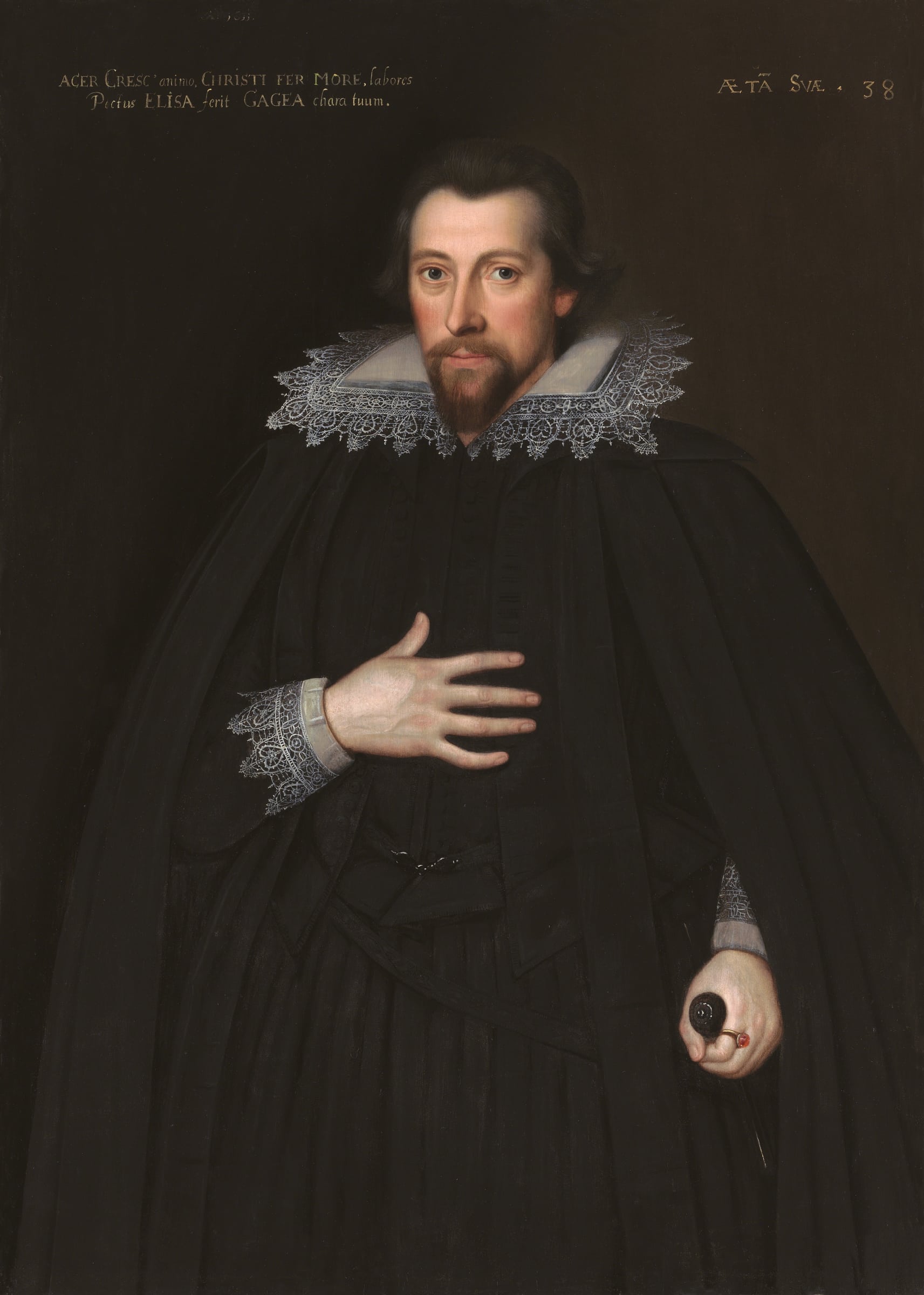Hello,
The following inscription appears on a 1611 painting I recently saw of Christopher Cresacre More, the great-grandson of Sir Thomas More. Cresacre is pictured in mourning garb in honor of his late wife Eliza who died the year before. The inscription is described as “deliberately enigmatic.” But I suspect the meaning is rather simple, once deciphered. My translating skills are pretty much nil. Could someone or several of you take a try? I think you would come closer to the original message than I.
Thanks!
ACER CRESC animo CHRISTI FER MORE, labores Pictus ELISA ferit GAGEA chara tuum
The following inscription appears on a 1611 painting I recently saw of Christopher Cresacre More, the great-grandson of Sir Thomas More. Cresacre is pictured in mourning garb in honor of his late wife Eliza who died the year before. The inscription is described as “deliberately enigmatic.” But I suspect the meaning is rather simple, once deciphered. My translating skills are pretty much nil. Could someone or several of you take a try? I think you would come closer to the original message than I.
Thanks!
ACER CRESC animo CHRISTI FER MORE, labores Pictus ELISA ferit GAGEA chara tuum

